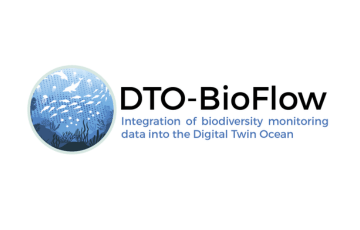
The ocean and its biodiversity are essential to life on this planet. Comprehensive data on biodiversity, and related human and environmental pressures are crucial to understand its current state and how this may change. Protecting and restoring biodiversity is one of three objectives of the Horizon Europe Mission to restore our oceans and waters by 2030, enabling the EU to reach its Green Deal and Biodiversity 2030 targets. Identified as one of the Mission “enablers”, the EU will build on “a digital knowledge system” to include a Digital Twin of the Ocean (DTO) allowing simulation of ‘what if’ scenarios, advancing ocean knowledge, informing evidence-based policy and offering a range of societal applications.
LifeWatch ERIC is leader of WP4 – Demonstrating with policy-relevant use cases the benefit of an end-to-end approach for biodiversity monitoring.